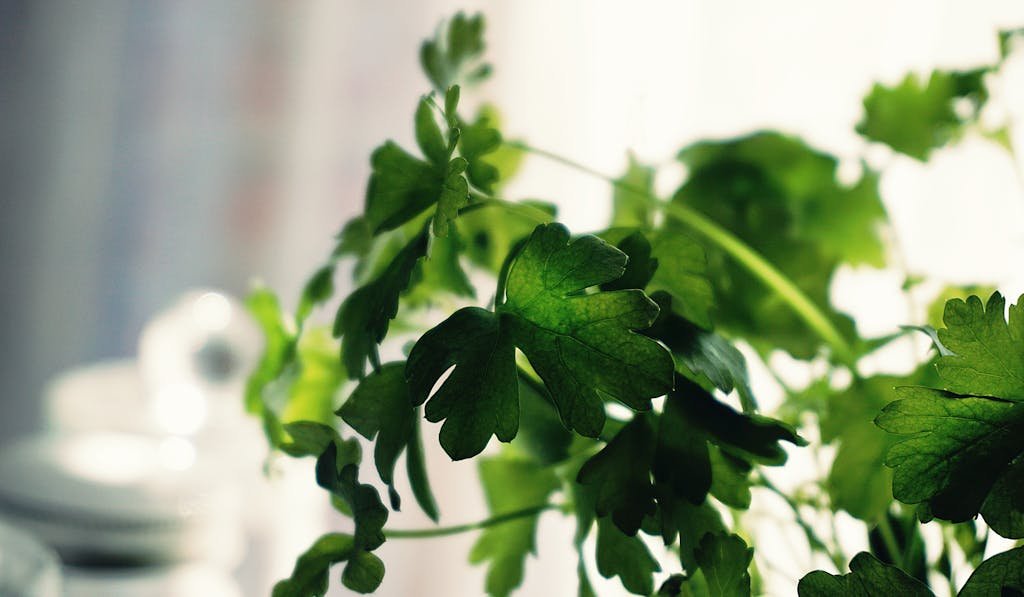English Thyme – (Thymus vulgaris)
English Thyme, or Thymus vulgaris, isn’t just another herb in the garden; it’s a powerhouse of flavor and benefits that’s been cherished for centuries. From its aromatic leaves to its ability to thrive in various climates, thyme has secured its spot in both culinary and medicinal worlds.
This versatile herb doesn’t just elevate dishes with its distinctive taste; it also boasts a rich history and a plethora of health benefits. Whether you’re a seasoned gardener, a culinary enthusiast, or simply curious, understanding the nuances of English Thyme can add a new dimension to your herb knowledge.
Key Takeaways
- Versatility and Rich History: English Thyme (Thymus vulgaris) is celebrated for its versatile culinary uses and rich history, dating back to ancient civilizations where it was used for its aromatic properties, in embalming, and as a symbol of bravery.
- Culinary Excellence: Thyme is a culinary staple that enhances the flavor of meats, vegetables, soups, and stews with its subtle earthy notes, and is also known for its nutritional benefits, including being rich in vitamins C and A.
- Medicinal Powerhouse: With its key component thymol, English Thyme offers significant medicinal benefits, such as antibacterial and antiviral properties aiding in respiratory conditions, antioxidant support for the immune system, and antispasmodic effects helpful for digestion.
- Easy Cultivation in Gardens: English Thyme is a low-maintenance, resilient herb suited for various climates, requiring well-drained soil, minimal watering, and little fertilization, making it an excellent addition for both novice and experienced gardeners.
- Environmental Benefits and Attractiveness to Beneficial Insects: Growing English Thyme not only enriches culinary and medicinal repertoires but also attracts beneficial insects, contributing to garden biodiversity and ecological health.
History of English Thyme
English Thyme, Thymus vulgaris, boasts a rich history that intertwines with various cultures and civilizations over the millennia. Originating in the Mediterranean region, this perennial herb became a staple in the gardens and kitchens of ancient Egyptians, Greeks, and Romans.
The Egyptians used thyme in their embalming processes, valuing its aromatic properties. Meanwhile, the Greeks incorporated it into their baths and burned it as incense in their temples, believing it was a source of courage. The Romans followed suit, using thyme to purify their rooms and adding it to cheeses and liqueurs, recognizing both its culinary and medicinal benefits.
Throughout the Middle Ages in Europe, thyme continued to be a symbol of bravery. Knights would often wear sprigs of thyme as a sign of courage before heading into battle. Moreover, it was planted in gardens not only for its uses in cooking and medicine but also as a supposed source of fairy magic, offering protection against nightmares.
In the 16th century, thyme was brought to the Americas where its popularity continued to grow. Its use in herbal medicine became especially prominent, with thyme oil being used for its antiseptic properties.
Recent research has supported historical uses of thyme, acknowledging its potent antibacterial and antifungal properties. For instance, a study published in the Journal of Food Science highlights thyme’s effectiveness against foodborne bacteria, making it not only a flavorful addition to dishes but also a safeguard for health.
| Century | Usage |
|---|---|
| Ancient | Embalming, rituals, courage |
| Middle Ages | Symbol of bravery, medicinal |
| 16th Century | Culinary, medicinal in America |
As the journey of English Thyme Thymus vulgaris unfolded through the ages, its versatility and benefits have firmly cemented it as a cherished herb around the world. Whether used in ancient rituals or modern kitchens, thyme continues to be a testament to the intertwined history of humans and the natural world.
Culinary Uses of English Thyme
English Thyme, Thymus vulgaris, has been a cornerstone in culinary traditions around the globe, due to its robust flavor and versatility in dishes. One of the herb’s most remarkable aspects is its ability to enhance the taste of a wide array of foods without overpowering them. Chefs and home cooks alike treasure English Thyme for its subtle earthy notes, which harmonize with various ingredients, making it a staple in many recipes.
In the culinary world, English Thyme is celebrated for its:
- Enhancement of meats: It’s particularly favored for seasoning chicken, beef, and pork, where its flavors penetrate deeply, infusing the meat with a distinctive aroma.
- Vegetable dishes: Thyme pairs beautifully with vegetables, especially root vegetables like carrots and potatoes, elevating their natural flavors.
- Soups and stews: The herb contributes depth and complexity to soups and stews, especially in slow-cooked dishes where its essence has time to meld with other ingredients.
Moreover, English Thyme is not just limited to savory dishes. Its leaves, either fresh or dried, are often used to flavor cheeses, sauces, and even baked goods. It has a unique characteristic of releasing its flavors slowly during the cooking process, making it an excellent herb for dishes that require prolonged simmering or roasting.
Recent research has also highlighted the nutritional benefits of incorporating English Thyme into meals. Rich in vitamins C and A, as well as dietary fiber, adding thyme to dishes can contribute to a healthier diet. Additionally, thyme’s natural compounds, such as thymol, have been identified for their antioxidant properties, potentially offering health benefits beyond its culinary uses.
Whether used as a garnish, infused in oils, or incorporated into marinades, English Thyme’s presence in the kitchen transcends mere taste, contributing both nutritional value and a connection to a rich history of culinary tradition. Its adaptability and complex flavor profile ensure that it remains a favored herb in cuisines worldwide, continuing to inspire innovative uses and dishes.
Medicinal Benefits of English Thyme
English Thyme (Thymus vulgaris) isn’t just a kitchen staple; it’s also a powerhouse of medicinal benefits. Historically, thyme has been used for various ailments, and recent research supports many of these traditional uses. Its key component, thymol, is a natural antiseptic and has a range of health-promoting properties.
One of the most well-documented benefits of English Thyme is its effectiveness in treating respiratory conditions. Studies have shown that thyme has strong antibacterial and antiviral properties, making it beneficial in fighting coughs, colds, and flu. A notable research study published in the Journal of Medicinal Food highlights thyme’s ability to alleviate coughs and relieve symptoms of acute bronchitis when combined with ivy.
Besides its respiratory benefits, English Thyme is also known for its antioxidant properties. It’s rich in vitamin C and A, offering support for the immune system and skin health. These antioxidants help neutralize free radicals, reducing oxidative stress and potentially lowering the risk of chronic diseases.
Thyme’s benefits extend to the digestive system as well. It has been observed to aid in digestion, reduce gas, and alleviate gastrointestinal discomfort. Its antispasmodic properties can soothe an upset stomach, making it a helpful herb for those prone to digestive issues.
For those interested in natural health, incorporating English Thyme into the diet or as a supplement could offer various benefits, from respiratory relief to digestive health support. Given its broad range of medicinal properties, it’s clear why thyme has remained a valued herb in both the culinary and medicinal worlds.
| Property | Benefit |
|---|---|
| Antiviral | Helps fight respiratory infections |
| Antioxidant | Supports immune system and skin health |
| Antispasmodic | Aids in digestion and relieves gastrointestinal discomfort |
Growing and Cultivating English Thyme
English Thyme (Thymus vulgaris), with its versatile culinary and medicinal uses, is a staple in many gardens around the world. Known for its resilience and low maintenance, growing English Thyme can be a rewarding endeavor for both novice and experienced gardeners.
Firstly, English Thyme thrives in well-drained soil and benefits from full sun exposure. It’s a hardy perennial that adapts well to various climate conditions but fares best in zones 5 through 9. When planting thyme, spacing is crucial; plants should be spaced approximately 9 to 12 inches apart to allow for ample air circulation and light penetration.
Watering needs for English Thyme are minimal once the plant is established. Over-watering can lead to root rot, so it’s advisable to let the soil dry out between waterings. A light, infrequent watering schedule ensures the plant’s roots are adequately moist without becoming waterlogged.
Fertilization is seldom needed for English Thyme. The herb prefers lean soil and often thrives in conditions where other plants might falter. If necessary, a light application of a balanced, slow-release fertilizer at the beginning of the growing season should suffice.
Pruning is an essential aspect of thyme cultivation. Regular harvesting or trimming of the tops helps promote bushier growth and prevents the plant from becoming woody. Moreover, harvesting just before the plant blooms yields the most flavorful leaves.
Pests and diseases are rarely a concern for English Thyme, thanks to its natural resistance. However, attention should be paid to potential issues such as root rot from over-watering and occasional pests like aphids.
For those interested in propagating English Thyme, it can be grown from seeds, cuttings, or division. While growing from seeds might be more challenging due to their small size and slow germination rate, cuttings and division offer quicker and more reliable results.
Incorporating English Thyme into the garden not only augments the variety’s culinary and medicinal repertoire but also attracts beneficial insects, enhancing biodiversity. With proper care and minimal intervention, English Thyme rewards gardeners with its aromatic presence year after year.
Conclusion
English Thyme, Thymus vulgaris, stands out as a versatile herb that not only elevates the flavor profile of a wide array of dishes but also brings a wealth of medicinal benefits to the table. Its easy cultivation and the ability to attract beneficial insects make it a valuable addition to any garden. Whether you’re looking to enhance your culinary creations, boost your health, or simply enjoy the aromatic presence of this herb in your garden, English Thyme proves to be an indispensable ally. Embracing its cultivation and incorporating it into your diet can lead to a healthier lifestyle and a more flavorful culinary experience.



